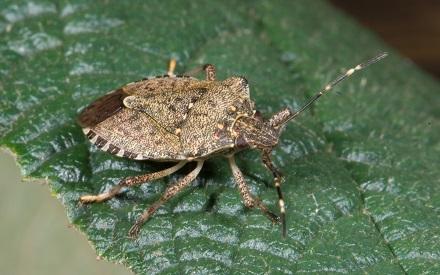Koch and rich 2015.
Corn soybean carpet bug.
The culprit are insects feeding on leaves.
Although stink bugs were light across the state with a few exceptions in corn and cotton it looks like we are having a stink bug year in soybeans.
Stink bug thresholds use the online stink bug in soybean threshold table and visit stink bug soybean pest page for updated information.
The culprit are insects feeding on leaves.
The corn dusky sap beetle carpophilus dimidiatus is the most common of several species of small flat brown and black sap beetles that are present in most corn fields.
Both our corn and soybean yields would be records but not as big as usda estimated aug.
Adult beetles are first noticed at about the time tassels.
They include the green stink bug chinavia hilaris brown stink bug euschistus spp southern green stink bug nezara viridula halys.
Stink bug density was also negatively associated with yield per plant in soybean.
Pentatomidae species are key pests of soybeans in kentucky.
Stink bugs are commonly found on corn in the beginning of the growing season and soybeans later in the season.
So it s really important we scout this crop especially as we move.
That puts harvested acres at 83 498 million.
Damage to corn kernels and to soybean pods and seeds increased with stink bug density in plots and was highest at the field edges.
The most common and noticeable injury found in a soybean field is defoliation.
Several stink bug hemiptera.
Managing stink bugs in corn and soybean stink bug populations can increase after a mild winter and in cropping systems that use no till and or cover crops.
As we harvest our corn and move later on in the season these later planted soybean fields become green islands that attract stink bugs to feed there.
We cut 525 000 acres from harvested corn acres with 300 000 coming from iowa.
Since we ve had a few mild winters in a row southern green stink bug is more.
A predatory species podisus maculiventris spined soldier bug is also observed in corn and soybean koch and pahs 2014 2015.

